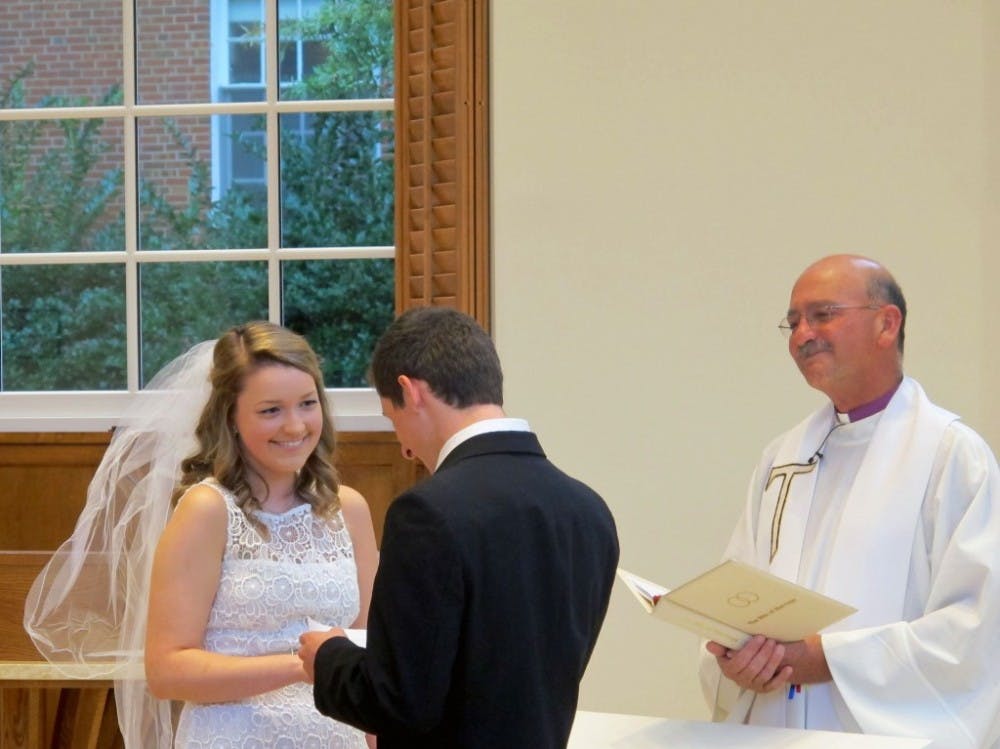Though one may be guilty of meticulously planning for that “big day” via Pinterest, marriage ceremonies are the furthest thing from the minds of most Elon University undergraduates. The Truitt Center for Religious and Spiritual Life is working to change that.
“Four Weddings and an Understanding” is a series of four mock wedding ceremonies, receptions and discussions that will be held in the Sacred Space of the Numen Lumen Pavilion throughout the current academic year.
The idea for the series came from a discussion Jan Fuller, university chaplain, had with junior LeeAnna Matarazzo during Spring Convocation 2013 in which they examined the possibility of sponsoring a comparative series of religious ceremonies. After discussing the suggestion during the summer, the Truitt Center staff began conceptualizing the first interfaith program they all planned together.
The first of these weddings was a Roman Catholic wedding Oct. 21, during which Truitt Center student interns sophomore Jessica Bast and senior Mateo Gaitan Granados were “married” by the Rev. Gerry Waterman, the Catholic campus minister. The bride and groom were responsible for selecting the biblical readings, choosing a color scheme for their wedding parties and other such practical planning.
“As a graduating college student, I have been thinking about other things than marriage,” Granados said. “Going through this experience allowed me to project myself in years to come and showed me the importance of what’s ahead in life, but I also learned that there’s a lot of things I would like to do before that time comes.”
The next wedding will be a same-sex Jewish wedding at 5 p.m. Nov. 18 in the Sacred Space of Numen Lumen. Later this semester and in the spring, an Islamic wedding and a Black Southern Baptist wedding will complete the series.
“We picked the ones we did because we thought we could pull them off, because we have leadership in those communities on campus and because we felt they were a little bit foreign to most of our students,” Fuller said.
The aim of the series is to prompt students who attend several of these weddings to begin to compare and ask questions about the ceremonial intricacies.
“It matters to your life because someday you’re going to be invited to a wedding of a cultural and religious tradition that you know nothing about, and if you can have thought of that a little bit in advance, you can have a better sense of how to function in that setting,” Fuller said. “We want folks to value the impact that paying attention to religion can have on your life. It can make you a better community member.”


